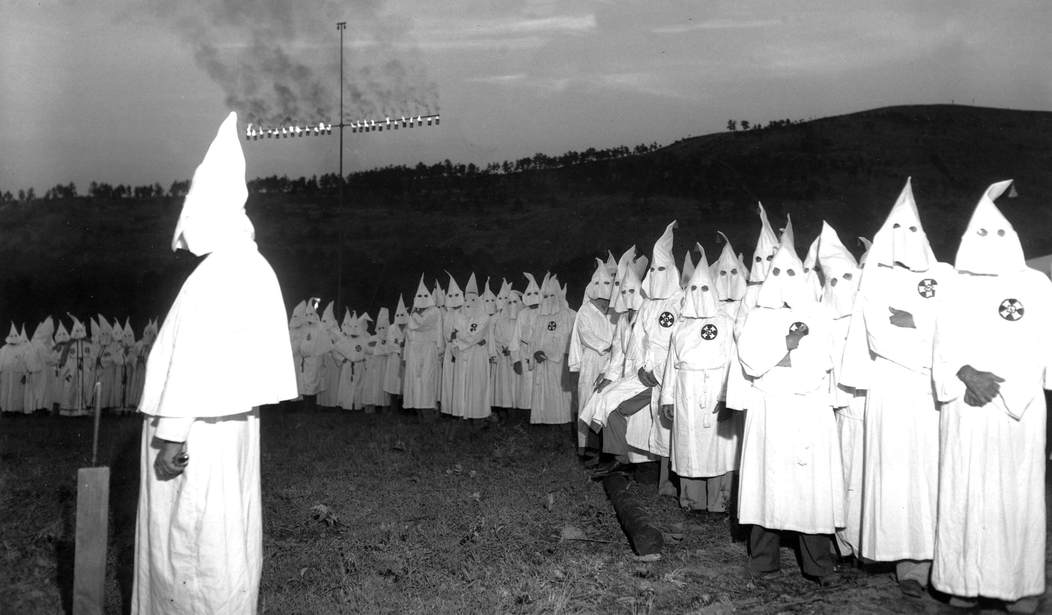Last weekend, CNN launched a four-part docuseries called The People v. The Klan, focusing on the story of Beulah Mae Donald, a black mother in Alabama, who enlisted the Southern Poverty Law Center (SPLC) to take down the United Klans of America (UKA), a Ku Klux Klan organization, after the brutal lynching of her son Michael Donald.
CNN’s first two episodes received strong ratings, and the final two episodes will air this coming Sunday. CNN deserves praise for running such an important story, but it seems likely the network will omit some of the key facts about Beulah Mae Donald’s life after the trial — facts that reveal how the Southern Poverty Law Center milked the case for donations while leaving the bereaved mother out in the cold.
CNN’s final episode, “It Takes a Mother,” will examine the multi-million civil suit Donald and the SPLC brought against the UKA, bankrupting this Ku Klux Klan organization. The court ordered the UKA to give Donald $7 million in damages — an historic legal victory.
Recommended: The SPLC’s Fall From Grace: How a Civil Rights Group Became a Threat to Free Speech
Yet, as I recounted in my book Making Hate Pay: The Corruption of the Southern Poverty Law Center, Beulah Mae Donald did not receive $7 million.
The diabetic bereaved mother received only $51,874.20, according to court records reviewed by the Montgomery Advertiser. The UKA didn’t have $7 million. The money Donald Did collect came from the sale of the UKA headquarters and property in Tuscaloosa. The Klan group gave her the building under the condition that the faction and its owners did not have to pay her anything else.
Oh. That’s a bummer. At least Donald received about $51,000. Where did that money go?
Donald used most of the money—$37,500—to pay off an interest-free loan she received…from the SPLC! The SPLC had lent her the money so she could buy a house and finally move out of public housing. The bereaved mother died in 1988, one year after the $7 million judgment. Her six children divided the estate, receiving a one-sixth ownership of the $37,500 house.
The SPLC, however, raked in $9.7 million between August 1, 1985 and July 31, 1987, as it featured the lawsuit in fundraising letters. Its top three executives were paid a total of $350,000 in that time.
Let’s get this straight: Beulah Mae Donald won a $7 million judgment over the lynching of her son, but she only received $51,000 for her trouble, most of which she used to pay her law firm, the SPLC. Meanwhile, the SPLC received one-hundred-and-eighty-seven times as much money in donations as Donald received in damages, and SPLC’s top executives received roughly twice the sum that Donald received in just two years.
But the story actually gets even worse.
In 1991, NBC aired Line of Fire: The Morris Dees Story, a film focusing on Dees’s lawsuit against the UKA. Dees reportedly received $60,000 for researching and editing the script and assisting in trial scenes during filming.
The bereaved mother also had rights to a movie, The Beulah Mae Donald Story, which was never made. “It sort of got consumed by Morris’ movie,” State Senator Michael Figures (D-Mobile), Mrs. Donald’s attorney, told the Advertiser.
According to the film’s producer, Mary Fischer, Dees “capitalized on the Michael Donald case and shut out the real story that needs to be told.”
According to the Advertiser, Fischer and her coproducer Irv Wilson pitched the Donald movie to HBO executive Robert Cooper in 1990 as Dees’s movie was being made. Cooper was reportedly interested, but he didn’t want to be in a second position to Dees’s film.
Recommended: SPLC’s ‘Hate Group’ Accusation Outed as a Scam, More Than 60 Groups Considering Lawsuits
“Of course we’re not going to make the same movie that somebody else has already got,” Doug Hilton, Cooper’s assistant, told the Advertiser.
Meanwhile, the SPLC’s donor letters arguably painted a picture of a UKA that actually had $7 million.
Carolyn Caver Madzimoyo, the first black staff member in the SPLC’s Klanwatch program (which morphed into a program to brand mainstream conservative and Christian organizations “hate groups” and place them on a map with the KKK), explained that the Klan was not the real problem for black Americans, even back in the late 1980s.
“It’s good media to say, ‘The Klan, $7 million,'” Madzimoyo said. “[But] it’s easy to not think about the Klan even one day of the year, especially if you don’t watch the news media.”
Donald wanted to go after the men who lynched her son, but she didn’t have the money for it. The SPLC picked up the legal fees. Yet Figures recalled, “It didn’t turn out to be that expensive, quite frankly. The Klan didn’t put up much of a fight. I would say that at least 90 percent of all the civil [lawsuit] work was prepared as a result of the criminal case,” which had already resulted in a guilty verdict.
One former SPLC lawyer had described beating the Klan in court as “sort of like shooting fish in a barrel.”
The southern journalist John Egerton explained that the Klan was “the perfect target” for SPLC co-founder Morris Dees. “It was, in the eyes of millions of people, black and white, a menace to society. From his closer perspective, however, Dees could see chinks in the armor: poverty and poor education in the ranks, competitive squabbling among the leaders, scattered and disunited factions, undisciplined behavior, limited funds, few if any good lawyers.”
Even Dees’s autobiography paints a picture of an ostracized KKK, struggling to survive and appealing to the dregs of society. He says of KKK members, “I would not normally have associated Mike with the word ‘elite.’ The Klan was probably the only organization he could join where he would feel special.”
Americans should celebrate the fact that, even in the late 1980s, the Klan was an extremely weak and marginal force. Even though the UKA did not have $7 million to pay Beulah Mae Donald, that high court judgment sent a powerful message about the kind of evil the Klan perpetrated. CNN is right to tell the story once again, and to focus on Donald, rather than Dees.
However, it seems unlikely that CNN will reveal the corruption of the Southern Poverty Law Center — the fact that the SPLC capitalized on the legal case and made a movie, edging out Donald’s project and leaving the bereaved mother to struggle with the small amount of cash she actually received from the UKA.
Recommended: Exaggerating Hate Pays: Scandal-Plagued SPLC Has Millions in Offshore Accounts, Half a Billion in Assets
This story helps to illustrate the way the SPLC perpetrates its scams by exaggerating hate to scare donors into ponying up cash. According to recent tax records, the SPLC has an endowment of half a billion — billion with a B — dollars, and accounts in the Cayman Islands.









Join the conversation as a VIP Member